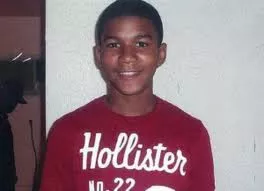Trayvon Martin-inspired discussion addresses local issues of racism
Community groups ask: Can we talk?
A little girl held her mother's hand as they walked through the halls of Little Rock AME Zion Church Wednesday night. She stopped suddenly, looked up and asked, exasperatedly, "What are we really doing here, mom?"
About 200 had gathered at the uptown church to discuss the implications of Trayvon Martin's death and how it has affected Charlotteans of different races and ethnicities. The 17-year-old African American youth was gunned down by George Zimmerman, a Hispanic community watch coordinator, the night of February 26 in Sanford, Fla. The case has opened questions - and stirred outrage - about race relations and institutional discrimination in the U.S.
Charlotte Observer editor Rick Thames opened the discussion, sponsored by Mecklenburg Ministries, the Community Building Initiative and Charlotte-Mecklenburg Community Relations Committee. He rehashed the case's reported details, which changed minutes before Thames walked onto the stage when prosecutors in Florida charged Zimmerman with second-degree murder. As Thames closed in on discussion of the struggle that ensued between Zimmerman and Martin just minutes before Martin was shot - a struggle that has been told various ways by witnesses and Martin and Zimmerman's family, leaving prosecutors clueless as to who provoked whom - a woman in the crowd put her arm around a teenage boy in a hoodie sitting next to her.
Panelists then gave their reactions to the case. Included were Brett Loftis, the executive director of Council for Children's Rights; Jelani Haskins, a 17-year-old Philip O'Berry Academy of Technology student; Jose Hernandez-Paris, a diversity and multicultural specialist with Charlotte-Mecklenburg Schools; Brian Heslin, an attorney with Moore & Van Allen; and Mary C. Curtis, an award-winning journalist and Creative Loafing contributing writer.
"All our actions are informed by what we believe," said Loftis, who is white. He identified an African American teen in a hoodie he knew in the crowd and asked the boy to stand. "When we see Chandler in a hoodie, it's different from when I'm in a hoodie."
"Talking to my Hispanic friends, no one wants to claim Mr. Zimmerman," Hernandez-Paris told the audience of mostly African Americans and whites. As a Charlottean and Latino, Hernandez-Paris talked about his past, which includes unprovoked stops by policeman. "I hate that my kids are having to do that 34 years later."
Heslin, the attorney, said he was "hardened" by the second-degree murder charge, adding that he hoped the case's physical evidence would be taken into consideration during the trial. He said that considering the evidence, he believed the charge was the harshest prosecutors could have given. Second-degree murder differs from first degree, which implies a murder was premeditated.
Curtis' comments about racial profiling and the difficulty of raising black children in the U.S received the most reaction from the crowd. "You want [your children] to grow up carefree," she said, "but also survive."
Audience members were then asked to break into small groups to discuss the personal implications of Martin's death.
Rashaa Brown, 35, is the mother of two young boys, ages 8 and 10, who patiently sat next to her during the discussion. Originally from Mississippi, she moved from Pittsburgh to Charlotte seven years ago. After quietly listening to her group discuss racism and what it means to be an African American in the U.S., she opened up about her struggles as a mother.
"I saw Trayvon's picture...I saw, for the first time, my sons. My children attend a bilingual school, but their talents, what I put into them, the time, the attention, none of that matters. All that matters is that they're black."

